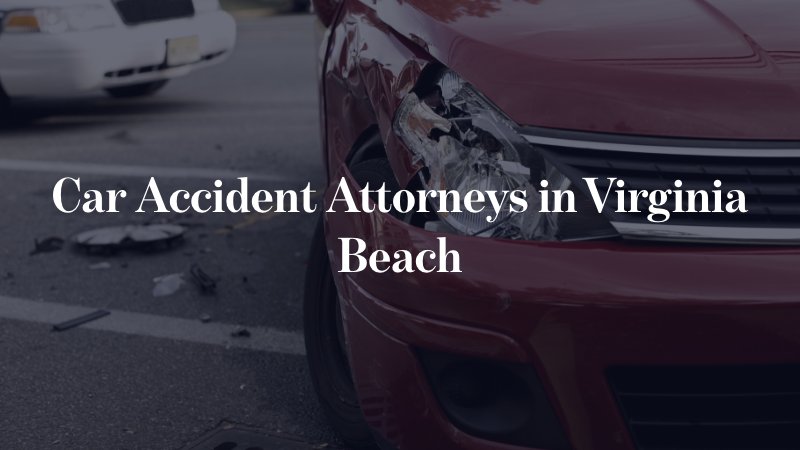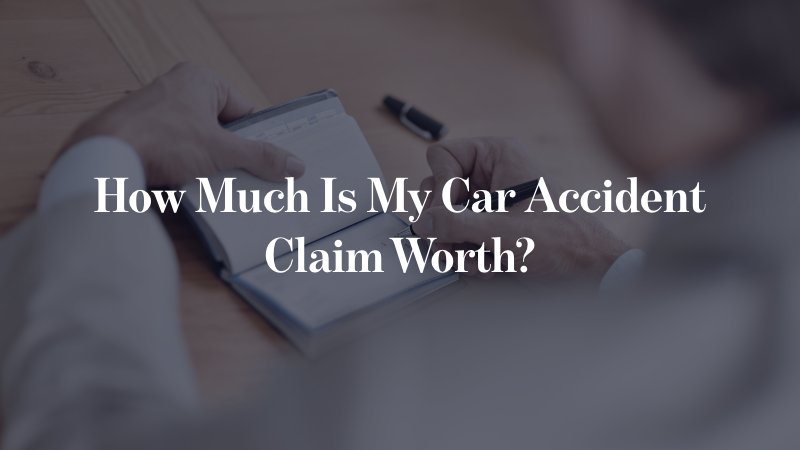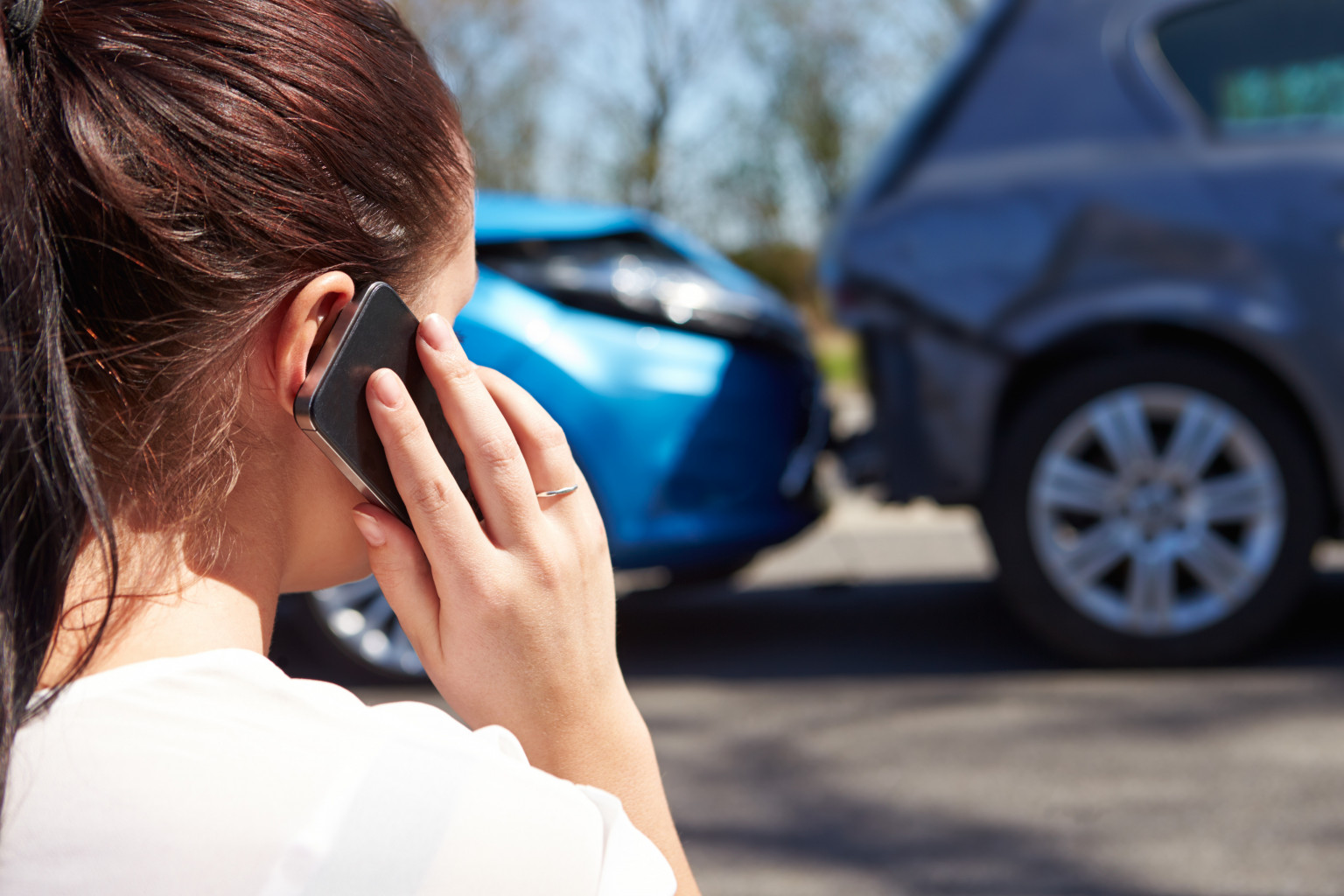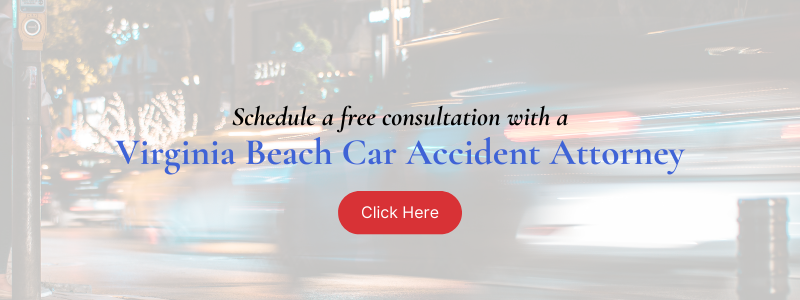Imagine if you or a loved one is injured in a car accident on I-64, or I-264, or driving to one of the beaches on Shore Drive in Virginia Beach. A car crash can leave individuals with significant injuries, extensive property damage, and even harm their earning capacity. Not only does this lead to pain and suffering of you and your loved ones, but there will surely be unexpected expenses.
At Shapiro, Washburn & Sharp, we are here to help if you need a Virginia Beach car accident attorney by your side. If you have been injured by the negligent or intentional actions of another driver, we have the resources necessary to investigate complex vehicle accident cases. An auto accident lawyer knows what it takes to stand up to aggressive insurance companies to ensure you recover full compensation.
Meet Richard Shapiro, Eric Washburn & Kevin Sharp

Richard Shapiro, Eric Washburn, and Kevin Sharp are Virginia Beach personal injury attorneys with your case in mind. Known for their efficiency, determination, and passion, they are car accident attorneys ready and able to handle car accident cases in Virginia Beach, no matter the stakes.
Together they have:
- More than 75+ years of professional legal experience
- Millions of dollars in case results
- No fees without results
- Call today to discuss your case
- $30,000-Winning a Jury Award for a Whiplash Victim in Virginia Beach, VA
- $675,000 Settlement For Beach Crash Victim Despite Preexisting Degenerative Disc
- $300,000 Settlement for Passenger Injured in Eastern Shore, VA Car Accident

Why Choose Shapiro, Washburn & Sharp for a Virginia Beach Car Accident Claim?
- At Shapiro, Washburn & Sharp, our law firm has practiced law since 1985 and has returned major settlements and jury verdicts on behalf of clients who need compensation the most.
- Our law office practices a client-focused approach at this firm, which means we take the time to listen to the goals and needs of every person who comes through our door for help.
- Our Virginia Beach personal injury lawyers are respected by our peers, our rivals, and the courts in Virginia. This respect was earned over decades, not just years.
- A personal injury lawyer from our firm isn’t afraid to fight for their client following auto accidents and help them through the claims process, even going against some of the most ruthless insurance providers.
Page Navigation
- How Will an Attorney Help a Virginia Beach Car Accident Case?
- What Are The Most Common Causes of Car Accidents in Virginia Beach?
- Type of Compensation Available for a Virginia Beach Car Accident
- How Much Does A Virginia Beach Car Accident Lawyer Cost?
- Determining the Worth of Your Virginia Beach Car Accident Claim
- Time Limit for Filing a Car Accident Claim in Virginia Beach
- Virginia Contributory Negligence Laws
- What To Do If You Are Injured As A Passenger?
- Major Injuries Caused By Minor Accidents
- Dangers Of Distracted Driving In Virginia Beach
- Contact A Virginia Beach Car Accident Lawyer
How Will A Virginia Beach Car Accident Attorney Help Your Case?
Motor vehicle accidents are not always straightforward, which is why an attorney is so often necessary to ensure clients recover maximum compensation. A personal injury attorney can get involved early and use their resources to fully investigate what happened. This will include:
- A motor vehicle accident lawyer will study and analyze all evidence needed to prove liability (photos and video, eyewitness statements, accident report, police reports, etc.).
- Ensuring their client is fully evaluated by a trusted medical professional who can assess the car accident injuries.
- An auto accident attorney is skilled at negotiating with auto insurance companies to recover maximum compensation.
- Your car accident settlement is of utmost importance to us and an accident lawyer will help guide you through the negotiation process of your lawsuit, making sure you receive the settlement offer that you deserve.
What Are The Common Causes of Car Accidents in Virginia Beach?

Data from the Virginia Department of Motor Vehicles indicates that there were 105,600 total vehicle accidents reported across the Commonwealth during the latest year of data we have on file. Out of these incidents, there were 847 fatalities and 52,668 total injuries. Examining the data more closely, we can see that there were 419 crashes reported in Virginia Beach, which resulted in 13 fatalities and 282 injuries.
Vehicle accidents occur due to a wide variety of reasons on Independence Boulevard, Rosemont Road, Princess Anne Road, and other areas of Virginia Beach and across the Commonwealth. However, some causes of crashes are more prevalent than others. This includes accidents caused by:
- Speeding or driving too fast for the conditions
- Alcohol- and drug-impaired driving
- Driving while distracted by phones or other devices
- Failing to yield the right of way
- Failing to obey stop signs or traffic signals
- Unsafe weather conditions
- Road conditions
What Types of Compensation Are Available for a Virginia Beach Car Accident?
There may be various types of compensation available to vehicle accident victims in Virginia Beach. The car accident lawyers at Shapiro, Washburn & Sharp work diligently to recover both “special” and “general” damages on behalf of car accident clients.
- Special damages. This is often referred to as economic damages and revolves around the types of compensation a car accident victim can receive for their calculable losses. These are calculable because we can add up bills or receipts for the following:
- Medical expenses
- Prescription medications or medical devices
- General household out-of-pocket expensive
- Physical therapy or rehabilitation
- Property damage expenses
- General damages. This is also referred to as non-economic damages. Non-economic damages are more immeasurable losses a car accident victim is likely to sustain. These are immeasurable because there are no direct bills or receipts to calculate a crash victim’s:
- Level of physical pain and suffering
- Loss of quality of life
- Emotional and psychological distress
- Loss of consortium for a spouse or family member
There is no set amount of money for how much compensation will be paid to a crash victim. There are various factors that can affect total compensation amounts, including the severity of the injuries, the level of property damage, whether or not a victim has to miss work, the level of a victim’s pain and suffering, and more.
The vast majority of car accident claims will be resolved through a settlement with insurance carriers in Virginia, with only a small number of cases going to an actual personal injury trial. Regardless of how your case is settled, it is crucial to work with trusted medical and economic experts who can properly calculate total expected losses.
“My wife was injured in an auto wreck while she was heading down I-264 in Virginia Beach. She suffered neck injuries, lower back injuries, and a mild concussion. It took her awhile to get herself together. That’s why we hired Rick Shapiro to handle our case and he did a splendid job. We’re very happy with the result!”
How Much Does it Cost to Hire a Virginia Beach Car Accident Attorney?
At Shapiro, Washburn & Sharp, our team takes Virginia Beach car accident cases on a contingency fee basis. This means that our clients will not have to pay any legal fees until after we recover the compensation they are entitled to.
You will not be responsible for paying any upfront or out-of-pocket costs while your case is ongoing.
What Is My Virginia Beach Car Accident Claim Worth?

The client is entitled to know what the lawyer thinks their case is worth, but the lawyer should be careful to not make assessments until they have full information. Normally, at the beginning of a case, it is difficult for the attorney to know with any certainty what the actual value of the case will be.
The main factors determining the fair value include the total amount of the medical bills, the extent and permanence of the injuries, the amount of lost wages, and other things that cannot be determined until later in the case.
There are so many different factors that go into the value of a given case that it is often hard to compare the value of one case to another. Factors that are quite specific to the individual file include the likability and credibility of the Plaintiff. This factor can make a huge amount of difference in how the insurer, the doctors, and the jurors respond to the claim.
Rest assured that the lawyer should give you a frank estimate of the value of the case at the soonest appropriate time, and certainly prior to beginning any negotiation about insurance coverage with an insurance company. Just because the attorney has an idea of the value of your case does not mean that you have to accept their number. Sometimes the client will perceive something that the lawyer did not and wants to go to trial, even though the attorney recommends the settlement on the table.
What Is The Time Limit for Filing a Car Accident Claim in Virginia Beach?
It is crucial for vehicle accident victims in Virginia Beach to file these claims promptly. The Virginia personal injury statute of limitations is two years from the date an injury occurs. Virginia Beach crash victims have to file a claim within this two-year timeframe, or they will not be able to recover the compensation they need.
However, insurance carriers have very strict reporting deadlines, often within a day or two after a crash occurs. If a vehicle accident is not reported to an insurance carrier promptly, the carrier could delay or deny the claim altogether.
What Are Virginia’s Contributory Negligence Laws?
To win an injury case arising out of a car accident you have to show that the other driver was at fault. All you have to show is that they were negligent, meaning that they failed to use ordinary care in their driving.
However, the law in Virginia says that the mere happening of an accident does not mean that anyone was at fault.
There can be situations where the potentially negligent driver is able to show that his actions were reasonable and that something other than his carelessness caused the accident. For example, if the defendant could show that he was faced with a sudden emergency, like his blacking out, he could not have known about this in advance or prevented it.
So, your attorney will need to be able to prove the liability against the person who caused the accident. Sometimes there can be more than one person who caused the accident. If you are the driver and your carelessness caused the accident in part, then you may not recover for the injuries that you suffered against the other driver, even if they were more at fault than you.
This is called the law of contributory negligence. Virginia is one of only a small number of states that keep this law, which is really unfair.
What if You Are An Injured Passenger In A Virginia Beach Car Accident?

Passenger cases are somewhat different than cases where the injured person is the driver.
First, the passenger may have a claim against both drivers (their own and the other car’s) if they were both negligent. Except in unusual circumstances, the passenger is not going to be at fault for causing the collision.
So, the defense of contributory negligence does not apply in passenger cases. They are typically stronger than cases where the injured person is the driver, who can potentially be blamed for being a partial cause of the wreck.
If the passenger’s claim is against their own driver, it is typically some family member or friend who was at the wheel. The car accident attorney can work through with you how this affects your case.
The main thing to understand is that the settlement is going to be paid for by the insurance company, not the individual at-fault driver. Therefore, even in a case where the potential at-fault driver is a friend or family member, the attorney can assure you that the claim will never involve asking for money from your friend or family member’s driver, themselves, just the responsible insurance company.
Often, this is not even an issue because the passenger does not believe that their driver was at fault in any event.
Can Minor Car Accidents Cause Major Injuries?
When a person is in what seems like a minor car accident, they often walk away grateful that the accident was not more severe. They may have a few bumps and bruises but don’t really pay attention because of the stress of the moment. But those minor injuries can end up becoming chronic ones that can be painful and begin interfering with a person’s quality of life. If you have been injured in a crash, consider speaking with a North Carolina accident attorney about your injuries.
Whiplash
Whiplash is one of the most common injuries that car accident victims suffer. A person can get whiplash even when the vehicle they are in is moving as slowly as 5 m.p.h. when it is hit. Any type of collision that causes a person’s head and neck to get thrown forward and backward abruptly can cause whiplash. When this jerking movement happens, the ligaments, muscles, and tissues of the neck get hyperextended in both directions which can tear muscles, cause strains, or cause vertebrae to get misaligned. The area then begins to swell, which places pressure on the nerves in the area and this can result in chronic pain. Other symptoms of whiplash include:
- Chest injuries
- Fatigue
- Headaches
- Insomnia
- Irritability
- Memory loss or difficult
- Neck injuries
- Shoulder pain
- Brain injury
- Spinal cord injury
- Burn injury
Other Related Injuries
There are other injuries that a victim can sustain in a minor crash which can end up causing long-term physical problems. A person’s back, hips, pelvic area, and knees are also at risk of injury in a collision. Herniated discs are one of the most frequent car accident back injuries and often require major surgery because the discs do not heal on their own. Tears to the ligaments and muscles that surround the knees are another common injury that requires a long time to heal, leaving the victim dealing with a painful recovery. The same holds true for injuries to the lower back, hips, and pelvis – all areas susceptible to serious injuries in minor car accidents.
Distracted Driving-Related Car Accidents
Driving in the state of Virginia is a privilege, not a right. When a person is issued a driver’s license, they agree to abide by all the rules of the road and to practice safe driving behaviors. But the number of vehicle accidents that happen every day in this country is a testament that there are just too many drivers who make negligent and reckless decisions when they get behind the wheel of their vehicle There are too many crashes that happen because of reckless or erratic driving, causing the deaths of almost 2,000 people every year. Speak to a Virginia Beach wrongful death attorney today to discuss your wrongful death claims.
Driving Under the Influence
One of the main reasons a person drives erratically or takes reckless chances as they are driving is because they are under the influence of alcohol and/or drugs. These substances greatly affect a person’s ability to drive, causing slower reaction times and hampering cognizant abilities.
Speeding
Every road has a speed limit. There is a reason for this. Driving too fast puts everyone on the road in danger, including other drivers, pedestrians, and cyclists. When a person is driving too fast, they may not be able to slow down or stop in time, like in a sudden traffic jam. Accidents that involve speeding are often more severe because of the force of the impact when the crash occurs.
Distracted Driving
Despite the number of laws and public education against engaging in distracted driving behaviors, the number of these types of accidents continues to increase. In addition to using handheld devices, there are other ways that drivers lose focus on the road around them, including eating, talking to passengers, adjusting mirrors, temperature controls, or radio.
Drowsy Driving
Getting behind the wheel when you are fatigued is just as dangerous – and reckless – as driving when you have been drinking. Unfortunately, the busy demands of everyday life leave many adults suffering from sleep deprivation. Fatigued driving is also a major cause of tractor-trailer accidents due to the number of hours truck drivers spend on the road, trying to meet almost impossible delivery schedules. If your accident involved a commercial vehicle, reach out to a Virginia Beach truck accident lawyer today.
Tailgating
Following the vehicle in front of you will not get you to your destination any faster. In fact, there is a strong likelihood your arrival will be delayed since tailgating is one of the most common causes of rear-end collisions. When you are driving behind another vehicle, apply the three-second rule. Pick a marker ahead, like a tree or sign, and once the car in front of you passes the item, begin counting. There should be a delay of at least three seconds before you pass the item. If someone is tailgating you, change to the next lane or pull over (when it is safe to do so) to let the other driver pass.
Call a Virginia Beach Car Accident Attorney For a Free Consultation Today
If you or somebody you love has sustained a car accident injury caused by the negligence of another driver in the Virginia Beach area, you can count on the team at Shapiro, Washburn & Sharp to have your back. We have decades of experience handling complex injury claims, and we know what it takes to stand up to aggressive insurance carriers to help clients recover full compensation for their losses.
We will not hesitate to use our resources to investigate every aspect of your claim. When you need a Virginia Beach car accident attorney, you can contact us for a free case evaluation by filling out the contact form below or calling us at (833) 997-1774.
